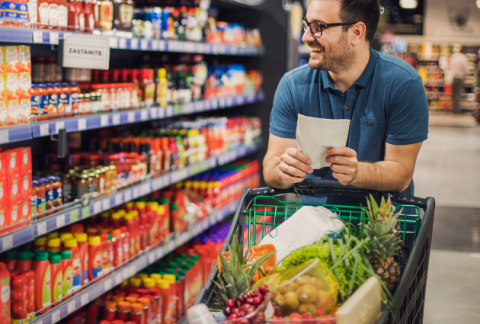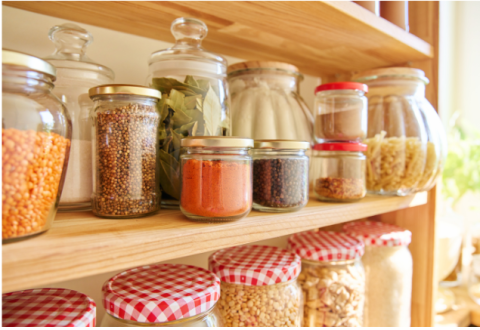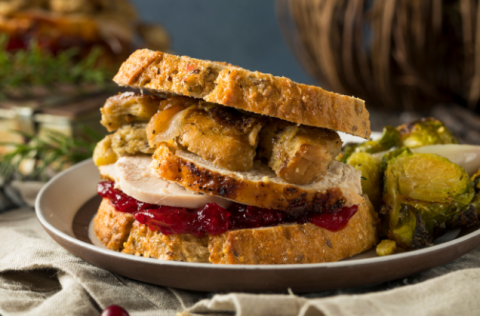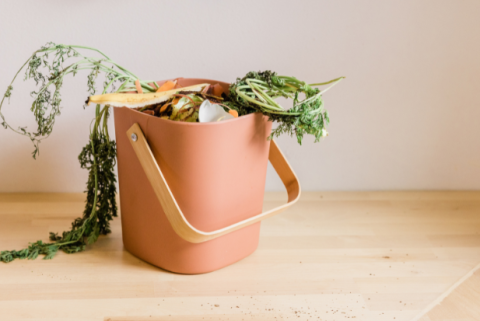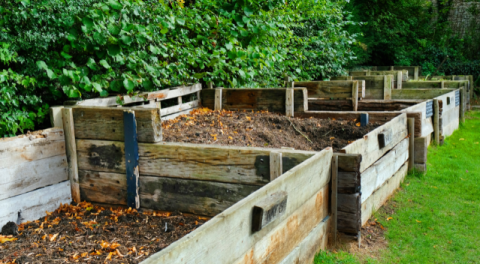Clark County Green News
'Tis the season... for holiday leftovers!
A crucial aspect of reducing our ecological footprint during the holidays is minimizing food waste. Food waste in landfills contributes to greenhouse gas emissions and exacerbates climate change. On average, Washington state generates 400,000 tons of edible food waste—with over 35,000 tons coming from Clark County alone. By being mindful of our food consumption and finding creative ways to use leftovers, we not only help mitigate these environmental impacts but also save valuable resources like water and energy.
Shop with a plan
Food waste prevention starts at the store - the goal is simple, to only buy what you need.
It can be difficult to anticipate how much food you need to buy for communal meals with friends and family during the holiday season. Save money and prevent food waste by using aguestimator to curate a fully customized menu fit for your holiday feast. This will help you only buy what you need by creating a detailed list before heading to the grocery store.
The Vancouver Famer's Market is now open year-round making it easy to pick up the fresh local ingredients for your holiday meal. Buying seasonally available local produce is not only a great way to support small business owners and Clark County farms, but it also reduces your carbon footprint.
Learn about food storage
There isn't a single golden rule to apply to the storage of fresh produce. Certain fruits benefit from aeration but most veggies last longest when sealed in airtight containers in the refrigerator, while some items, like onions and potatoes, shouldn't be refrigerated at all.
To help you master the art of food preservation and conservation, we've compiled our top zero-waste kitchen tips and tricks so you can save money and the environment in one fell swoop. Learn more about food storage.
Celebrate "scrappy cooking"
Let's not forget the joy of leftovers during the season - revive holiday foods by creating new combinations. This will help reduce food waste and provide tasty and creative ways to enjoy holiday leftovers.
A few of our favorite repurposed recipes include:
- Using leftover mashed potatoes to make potato pancakes.
- Turning cranberry sauce into a topping for yogurt or oatmeal.
- Boiling bones to create a flavorful and nutrient rich bone broth.
- Turkey sliders or whole-grain wrap
- Vegetable stir-fry over rice
- Pumpkin soup
Compost food scraps
Organic waste including food scraps that end up in the landfill produce methane, a toxic greenhouse gas. As part of Clark County's We Compost program, 78th Street Heritage Farm is now accepting food scraps for compost from the surrounding community – for free! The community can bring food scraps of all kinds to the green food waste cart located near the fence in Heritage Farm's parking lot.
Start a classroom composting system
If you want to create your own nutrient-rich soil and do your part to contribute to a more sustainable future, Clark County Green Schools has resources for beginning a classroom composting system using worm bins.
Embracing low waste holiday meals is not only an excellent way to reduce our ecological footprint, but it also allows us to create more sustainable and meaningful holiday celebrations. By shopping smart, practicing proper food storage, finding creative ways to use leftovers, and composting food scraps, we can make a significant difference in minimizing the environmental impact of wasted food while saving money.
Remember, small changes have a big impact. Happy holidays and happy low waste cooking!
When you subscribe to the blog, we will send you an e-mail when there are new updates on the site so you wouldn't miss them.


